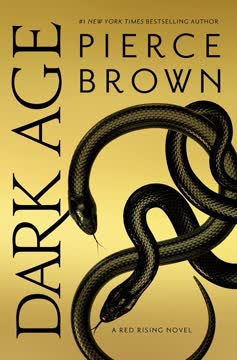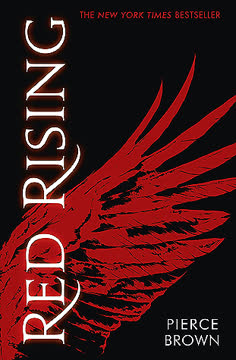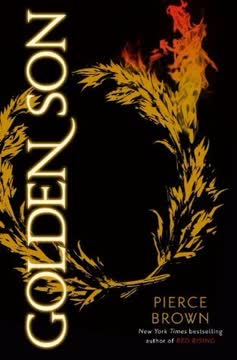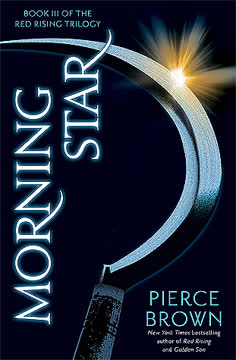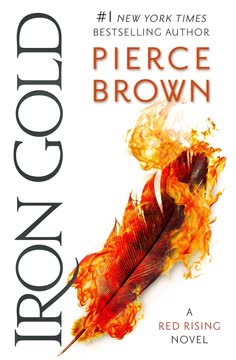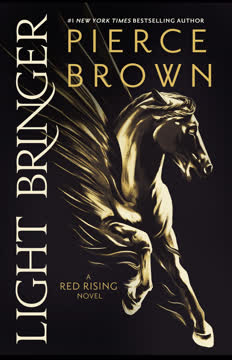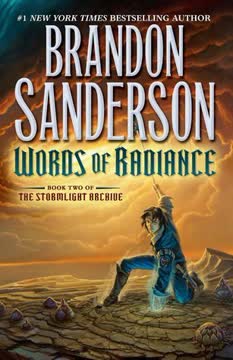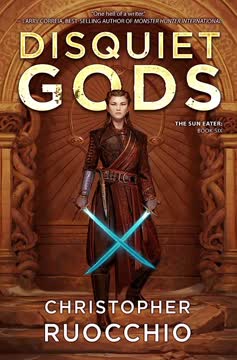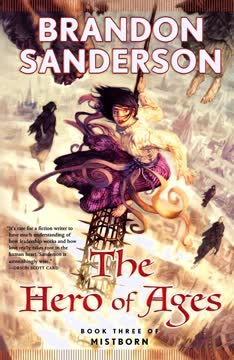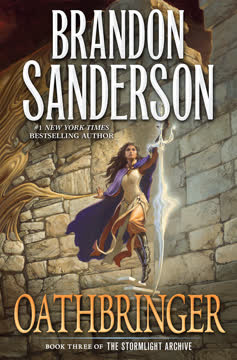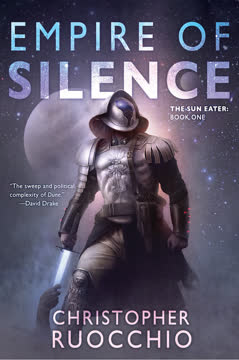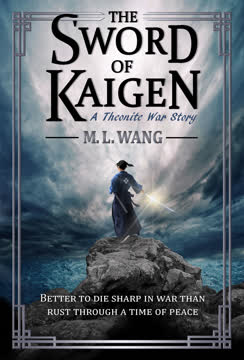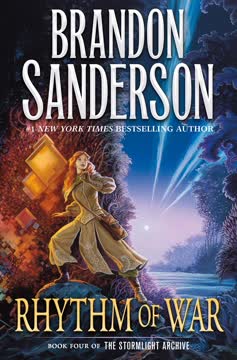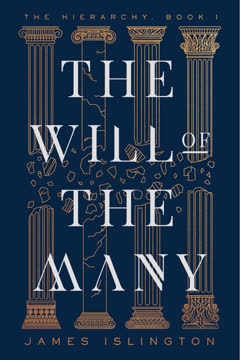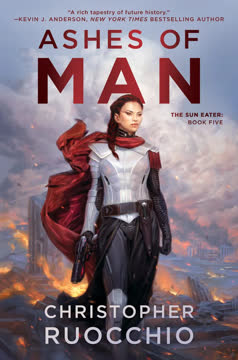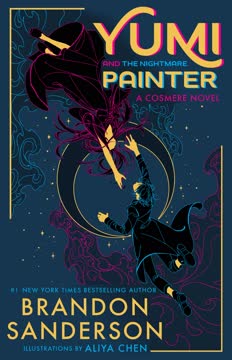Plot Summary
Ashes of the White Fleet
The novel opens with the Solar Republic's White Fleet shattered in Mercury's orbit, a testament to the cunning and brutality of Atalantia au Grimmus, the new Dictator of the Society. Darrow, the Reaper, is marooned with his Free Legions on Mercury, cut off from reinforcements and hope. The Republic's Senate, paralyzed by fear and self-interest, debates abandoning the stranded soldiers. Virginia au Augustus (Mustang), the Sovereign, pleads for unity and resolve, but the seeds of division and doubt are sown. The stage is set for a desperate struggle, as Darrow and his battered army prepare to endure the coming storm, knowing that only sacrifice and cunning can stave off annihilation.
The Siege of Mercury
On Mercury's surface, Darrow leads his exhausted, outnumbered Free Legions in a brutal siege. Atalantia's Ash Armada blockades the planet, preparing for a devastating Iron Rain. The Fear Knight, Atlas au Raa, sows terror with guerrilla tactics and psychological warfare, leaving forests of impaled victims and maimed survivors. Darrow's inner circle—Thraxa, Alexandar, Rhonna, and others—struggle with the moral cost of war and the burden of command. The city of Heliopolis becomes a cauldron of fear, insurrection, and despair, as the Republic's dream of liberty is tested by the relentless cruelty of the Society's remnants.
The Fear Knight's Forest
The Fear Knight's reign of terror is felt in every corner of Mercury. His signature—impalements, mutilations, and psychological torment—breaks the spirit of Darrow's men. Yet, Darrow refuses to yield, orchestrating daring raids and rescues, including a harrowing mission to save Orion, his trusted Blue admiral, from Atlas's clutches. The cost is high: friends die, and the survivors are forever changed. Darrow's leadership is both a beacon and a curse, as he spends the lives of those he loves for a cause that grows ever more uncertain.
Mustang's Gambit
While Darrow fights on Mercury, Mustang battles a different war on Luna. The Republic's Senate is paralyzed by fear, corruption, and the machinations of Publius cu Caraval and the Vox Populi. Mustang's attempts to rally support for a rescue fleet are stymied by political infighting and the threat of civil war. Sevro, Darrow's closest friend, wages a bloody campaign against the Syndicate, a criminal empire led by the enigmatic Queen. The cost of vengeance and the fragility of democracy are laid bare, as Mustang is forced to choose between principle and survival.
The Iron Rain Falls
Atalantia launches her Iron Rain, dropping millions of soldiers onto Mercury in a cataclysmic assault. Lysander au Lune, the lost heir of the Society, returns to the stage, forging an alliance with the Rim and the Core. The battle is a maelstrom of violence, with Golds, Obsidians, and Grays clashing in the ruins of cities and the wastes of the Ladon desert. Darrow's forces are battered, but he unleashes a secret weapon: the Storm Gods, ancient terraforming engines that create hypercanes and devastation, buying precious time at a terrible cost.
The Storm God Unleashed
The unleashing of the Storm Gods turns the tide, drowning cities and armies alike in apocalyptic storms. Orion, traumatized and changed by her captivity, becomes a weapon of mass destruction, her mind and soul scarred. The line between savior and monster blurs, as Darrow's choices lead to the deaths of millions—enemy and civilian alike. The dream of a just war is lost in the storm, replaced by the grim calculus of survival.
The Mind's Eye Opens
Lysander, once a pawn, now becomes a player. Guided by the Mind's Eye—a meditative, almost supernatural state of awareness—he navigates the treacherous politics of the Society, the Rim, and the Core. Betrayals and Political Intrigue shift like sand, as Lysander claims his Peerless scar and forges a new path for Gold. His choices set him on a collision course with Darrow, as the old world's heirs and the new world's rebels vie for the soul of humanity.
The Day of Red Doves
On Luna, a coup orchestrated by Publius and the Syndicate Queen (revealed as Lilath, the Jackal's old lieutenant) shatters the Republic. The Senate is massacred in a bloodbath known as the Day of Red Doves. Mustang is betrayed, paralyzed, and imprisoned. Sevro and the Howlers are captured. The dream of democracy is drowned in blood, as the mob turns on its heroes and the monsters of the past return to claim the future.
The Fall of Heliopolis
With the Republic in chaos and Mercury's defenses shattered, Darrow makes a final stand in Heliopolis. Lysander, now a Peerless Scarred and the darling of the Society, leads a triumphant charge, breaking Darrow's lines with cavalry and Gold might. The Free Legions are slaughtered, their survivors impaled or enslaved. Darrow is mortally wounded, his army destroyed, his dream in ashes. The Reaper's legend ends in defeat, as the world he fought to build is consumed by darkness.
The Triumph of Lune
Lysander claims victory, hailed as the savior of Mercury and the heir of Silenius. Atalantia, wary of his popularity, seeks to bind him through marriage and politics, but Lysander's ambition and cunning make him a force to be reckoned with. The Society is reborn in his image, blending the old order's ruthlessness with a new vision of unity and strength. Yet, the seeds of future conflict are sown, as alliances fracture and the cost of victory becomes clear.
The Queen's Last Stand
On Mars, Sefi the Quiet, Queen of the Obsidians, is betrayed from within. The Ascomanni, a lost tribe of Obsidians led by Volsung Fá, invade, unleashing a new wave of barbarism and conquest. Sefi is brutally executed in a ritual blood eagle, her heart eaten by Fá. The Alltribe is shattered, and Mars is plunged into chaos. Volga, revealed as Ragnar's daughter and Fá's heir, is forced to choose between vengeance and survival, as the world she hoped to join is consumed by savagery.
The Rise of Volsung Fá
Volsung Fá, a monstrous warlord from the Kuiper Belt, claims the mantle of Obsidian leadership. His arrival signals the end of Sefi's dream and the beginning of a new dark age. The Obsidians, once the Republic's shield, become its greatest threat. Volga, torn between her heritage and her loyalty to her friends, is offered as a sacrifice to save Mars. The cycle of violence and betrayal continues, as the world teeters on the brink of annihilation.
The Pandora's Betrayal
The Julii flagship Pandora is boarded by the Ascomanni, led by Fá's agents and the traitorous Xenophon. Volga and Lyria, prisoners of war, fight for survival as the ship is overrun. Figment, a mysterious freelancer, is revealed to be more than human—a vessel for an ancient parasite. The chaos of the attack leads to the deaths of many, including Victra's newborn son, Ulysses, who is murdered by the Red Hand. The survivors are scattered, their hopes dashed.
The Price of Survival
Lyria, Volga, and Victra endure unimaginable loss and horror. Lyria's quest for vengeance against Harmony, the Red Hand's leader, ends in a brutal reckoning. Volga, revealed as the key to Fá's plans, is forced to choose between her own freedom and the lives of millions. The cost of survival is paid in blood, as old debts are settled and new wounds are opened.
The Death of Hope
Darrow's defeat at Heliopolis marks the end of the Republic's last hope. The Free Legions are destroyed, their survivors impaled or enslaved. Mustang, Sevro, and the Howlers are prisoners of the Abomination—a clone of the Jackal, created by Lilath. The dream of liberty is dead, replaced by a new tyranny. The world is plunged into a new dark age, as the monsters of the past reclaim their thrones.
The Maze Without Center
Lysander, haunted by the truth of his mother's murder and the lies of his upbringing, struggles to define himself in a world without center. The Mind's Eye, the Pandemonium Chair, and the legacy of Octavia shape his choices. The lines between hero and villain blur, as every character is forced to confront the cost of their convictions and the emptiness at the heart of power.
The Return of the Reaper
Against all odds, Darrow is rescued by Cassius, who survived the Rim's justice. Together, they escape Mercury, leaving behind a world in ruins but carrying the hope of vengeance and redemption. The legend of the Reaper endures, even as the world he fought for is lost.
The Gorydamn Consequence
The novel ends with the world in chaos: Luna ruled by the Abomination and the Boneriders, Mars ravaged by the Obsidians, Mercury in the grip of Lysander and Atalantia, and the Republic shattered. Every victory is paid for in blood, every hope dashed by betrayal. Yet, in the darkness, the seeds of resistance and renewal remain, as the survivors—Darrow, Mustang, Volga, Lyria, and others—prepare for the next, even more desperate struggle.
Characters
Darrow of Lykos (The Reaper)
Darrow is the central figure of the Rising, a Red who became a Gold to overthrow the Society. In Dark Age, he is a man on the edge—exhausted, traumatized, and driven by a sense of duty that has consumed his personal happiness. His relationships with Mustang, Sevro, and his son Pax are strained by the choices he makes in war. Darrow's leadership is both his greatest strength and his curse; he inspires loyalty and fear, but the cost is measured in the lives of those he loves. His arc in this novel is one of tragic heroism, as he endures defeat, betrayal, and the loss of hope, yet refuses to surrender, embodying the stubborn resilience of the human spirit.
Virginia au Augustus (Mustang)
Mustang is Darrow's wife and the Sovereign of the Republic. Her intelligence, compassion, and political acumen are unmatched, but she is beset on all sides by enemies—within and without. Her struggle is to preserve the dream of democracy in a world that seems determined to destroy it. She is betrayed by those she trusts, paralyzed and imprisoned by the Syndicate Queen, and forced to watch the Republic she built torn apart. Yet, her love for Darrow and Pax, and her refusal to abandon hope, make her a beacon in the darkness.
Lysander au Lune
Lysander is the grandson of Octavia, raised in exile and tutored by Cassius. In Dark Age, he emerges as a central antagonist, claiming his Peerless scar and forging a new path for Gold. Guided by the Mind's Eye, he is both idealistic and ruthless, seeking to restore order and unity to a fractured world. His journey is one of self-discovery and moral ambiguity, as he becomes the architect of the Republic's destruction and the Society's rebirth. Lysander's relationships—with Atalantia, Ajax, and the ghosts of his past—are fraught with betrayal and longing for approval.
Sevro au Barca
Sevro is Darrow's closest friend and the leader of the Howlers. His loyalty is absolute, but the horrors of war and the loss of his family drive him to the edge. His campaign against the Syndicate is a descent into madness and vengeance, culminating in his capture by the Abomination. Sevro's arc is one of tragic loyalty, as he sacrifices everything for his friends and family, only to be undone by the monsters of the past.
Sefi the Quiet
Sefi is the leader of the Obsidians, a symbol of their liberation and hope. Her dream of unity and peace is shattered by betrayal from within and the invasion of Volsung Fá. Her brutal execution marks the end of an era and the beginning of a new dark age. Sefi's legacy is one of courage and tragedy, as she is consumed by the very forces she sought to tame.
Volga Fjorgan
Volga is revealed as the daughter of Ragnar and the key to Fá's plans. Her journey is one of self-discovery and sacrifice, as she is forced to choose between her heritage and her friends. Volga's innocence and strength make her both a target and a hope for the future, as she becomes the pawn in a game far larger than herself.
Lyria of Lagalos
Lyria is a Red from the camps, haunted by the loss of her family and driven by a need for vengeance and meaning. Her arc is one of transformation, as she moves from victim to agent, using the mysterious Figment parasite to become a force in her own right. Lyria's relationships—with Volga, Ephraim, and the Julii—are marked by pain, betrayal, and the search for a place to call home.
Ephraim ti Horn
Ephraim is a former Son of Ares turned freelancer, whose cynicism masks a deep longing for connection. His relationship with Volga and Lyria brings out his better nature, and his final acts are ones of sacrifice and defiance. Ephraim's death at the hands of Volsung Fá is a testament to the cost of survival and the possibility of redemption.
Atalantia au Grimmus
Atalantia is the new ruler of the Society, a woman of immense cunning, charm, and ruthlessness. She orchestrates the destruction of the White Fleet, the Iron Rain, and the political machinations that shatter the Republic. Her relationship with Lysander is one of manipulation and rivalry, as she seeks to maintain her supremacy in a world of shifting alliances.
Volsung Fá
Volsung Fá is the monstrous leader of the Ascomanni, a figure of myth and terror. His arrival signals the end of Sefi's dream and the beginning of a new era of barbarism and conquest. Fá's philosophy is one of might makes right, and his actions—ritual executions, cannibalism, and the destruction of Olympia—mark him as the embodiment of the world's descent into chaos.
Plot Devices
Multi-POV Narrative Structure
Dark Age employs a rotating cast of point-of-view characters—Darrow, Mustang, Lysander, Lyria, Ephraim, and others—to present a panoramic view of a galaxy in turmoil. This structure allows the reader to experience the war from every angle: the battlefield, the Senate, the underworld, and the hearts of the oppressed. The shifting perspectives create dramatic irony, foreshadowing, and a sense of relentless momentum, as victories in one arena become defeats in another.
The Mind's Eye and Pandemonium Chair
The Mind's Eye, a meditative state of heightened awareness, becomes Lysander's secret weapon, allowing him to survive and triumph in impossible situations. The Pandemonium Chair, a device for erasing and rewriting memory, is used to control, torture, and break characters—most notably Mustang and the Duke of Hands. These devices symbolize the battle for identity and agency in a world where truth is malleable and power is everything.
EMP and Technological Regression
The use of the EMP (Storm God) on Mercury is a pivotal plot device, stripping away the technological advantages of the Golds and forcing a return to primal, brutal combat. This regression exposes the true nature of power and the fragility of civilization, as the veneer of progress is torn away to reveal the violence beneath.
Betrayal and Political Intrigue
The novel is driven by a web of betrayals—personal, political, and ideological. Friends become enemies, lovers become rivals, and every victory is undercut by treachery. The Day of Red Doves, the coup on Luna, and the rise of the Abomination are all products of careful plotting and manipulation, highlighting the dangers of idealism and the cost of naivety.
Ritual and Symbolism
Rituals—Triumphs, executions, blood eagles, and marriages—are used to legitimize authority, inspire fear, and bind people to causes. The manipulation of symbols (the slingBlade, the laurel, the impalements) is central to the struggle for the soul of the worlds, as every side seeks to claim the narrative and define the future.
Analysis
Dark Age is a brutal, unflinching exploration of the cost of revolution, the fragility of hope, and the cyclical nature of power. Pierce Brown strips away the romanticism of rebellion, exposing the violence, betrayal, and moral compromise that underpin every victory. The novel interrogates the meaning of leadership, the dangers of idealism, and the ease with which the oppressed become oppressors. In a world where every system is corrupted, and every hero is broken, the only constant is the will to endure. Brown's characters are defined by their choices in the face of impossible odds, and the novel's relentless pace and shocking twists force the reader to confront the darkness at the heart of humanity. Yet
Last updated:
FAQ
Synopsis & Basic Details
What is Dark Age about?
- A Galaxy at War: Dark Age plunges the Solar Republic into its most brutal conflict yet, as Darrow and his Free Legions are marooned on Mercury, facing annihilation from Atalantia au Grimmus's Society remnant. The novel follows multiple perspectives—Darrow's desperate fight for survival, Virginia's political struggle on Luna, Lysander's complex rise within the Society, and the harrowing journeys of Lyria and Ephraim through a collapsing galaxy.
- The Cost of Revolution: The narrative relentlessly explores the grim consequences of war, revealing how idealism curdles into pragmatism, and how even heroes are forced into morally compromising choices. It's a story of endurance against overwhelming odds, where every victory is paid for in blood and betrayal.
- A Fractured Future: As old alliances shatter and new, monstrous threats emerge (like Volsung Fá and the Jackal's clone), the very fabric of the Republic unravels. The book depicts a universe teetering on the brink of a true "dark age," where humanity's survival hinges on the broken wills of its most tormented leaders.
Why should I read Dark Age?
- Unflinching Brutality: Dark Age is renowned for its visceral, no-holds-barred depiction of warfare and its psychological toll, pushing the boundaries of grimdark science fiction. Pierce Brown doesn't shy away from the horrific realities of conflict, making for an intense and often shocking reading experience.
- Deep Character Exploration: Beyond the action, the novel offers profound psychological dives into its complex characters, revealing their hidden motivations, internal conflicts, and the devastating impact of their choices. Readers gain intimate access to the minds of Darrow, Lysander, Virginia, and others as they grapple with impossible dilemmas.
- Masterful World-Building & Pacing: Brown expands the Red Rising universe with intricate political intrigue, diverse cultures, and innovative technology, all woven into a relentless, high-stakes narrative. The multi-POV narrative structure keeps the reader on edge, constantly shifting perspectives to reveal new layers of betrayal and desperation.
What is the background of Dark Age?
- Post-Revolutionary Turmoil: Dark Age is set five years after the events of Morning Star, following the establishment of the Solar Republic and the uneasy peace that followed. The Society, though fractured, is far from defeated, with Atalantia au Grimmus rising as a ruthless Dictator, seeking to reclaim lost glory and crush the nascent Republic.
- Political & Social Fragmentation: The Republic itself is deeply divided, plagued by internal factions like the Vox Populi (populist, anti-war) and the Optimates (pro-war, traditionalists), as well as lingering Color prejudices and economic disparities. This internal strife leaves it vulnerable to external threats and internal coups.
- Technological & Environmental Warfare: The conflict escalates beyond conventional battles, incorporating ancient terraforming engines (Storm Gods) capable of generating apocalyptic weather, advanced psychological warfare (Fear Knight's tactics, Pandemonium Chair), and devastating EMPs, transforming planets into battlegrounds and blurring the lines between natural disaster and deliberate destruction.
What are the most memorable quotes in Dark Age?
- "War is our time.": This chilling realization from Darrow in Chapter 1, "Till the Vale," encapsulates his grim acceptance of perpetual conflict, a stark contrast to his earlier dreams of peace. It defines his hardened resolve and the brutal reality of the era.
- "The world is a maze without a center. Become it, or be forever lost.": Attributed to Silenius au Lune in Silenius's Meditations, this quote (Chapter 92) becomes Lysander's guiding philosophy, reflecting his embrace of chaos and his ambition to impose his own order on a fractured galaxy.
- "If your heart beats like a drum, and your leg's a little wet, it's 'cause Midnight's come to collect a little debt.": Colloway xe Char's signature line (Chapter 76), delivered with chilling nonchalance, embodies the grim humor and lethal efficiency of Darrow's Howlers and the brutal, almost poetic, nature of combat in the series.
What writing style, narrative choices, and literary techniques does Pierce Brown use?
- Visceral, Sensory Prose: Brown's writing is characterized by its intense, immersive sensory details, particularly in battle scenes. He uses vivid imagery and strong verbs to convey the brutal reality of combat, making the reader feel the "smell of burning flesh," the "crunch of ice under clawed titanium foot," and the "tangy chlorine smell of ozone."
- Relentless Pacing and Escalation: The narrative maintains a breakneck pace, constantly escalating the stakes and throwing new challenges at the characters. This is achieved through rapid scene changes, cliffhanger chapter endings, and a sense of impending doom that permeates every plotline, creating a feeling of being "swept away by the torrent."
- Intertextual Allusion and Classical Echoes: Beyond the multi-POV narrative structure, Brown deeply embeds classical allusions, particularly Roman and Greek mythology and history. Quotes from Ovid, Caesar, and Shelley, alongside character names and plot parallels (e.g., Thermopylae, Cannae, Sisyphus), enrich the thematic depth, suggesting a cyclical nature of power and human folly.
Hidden Details & Subtle Connections
What are some minor details that add significant meaning?
- Dago's Lykos Soil: Darrow's encounter with Dago, an old Red miner from his home (Chapter 1), and the exchange of Lykos soil, is a subtle but powerful reminder of Darrow's roots and the simple, human cost of his war. It grounds his grand ambitions in the personal, foreshadowing his eventual return to these fundamental values.
- Glirastes's Oculus City Model: The Master Maker's unbuilt "Oculus" city (Chapter 64), designed for a child and based on Lysander's eye, symbolizes Lysander's lost innocence and Glirastes's unfulfilled artistic ambition. It hints at a deeper, more benevolent side to Glirastes, making his later betrayal by Atlas and forced complicity with Darrow more tragic.
- The Night Lilies in Virginia's Office: These seemingly decorative plants (Chapter 26) are revealed to be a deadly, painful defense mechanism, reflecting Virginia's own hidden layers of protection and the dangerous nature of her environment. They symbolize her internal struggle between her compassionate nature and the ruthless necessities of her role as Sovereign.
What are some subtle foreshadowing and callbacks?
- Orion's Radicalization: Early descriptions of Orion's coldness and her past as "Slave Two" (Chapter 1) subtly foreshadow her eventual descent into genocidal rage with the Storm Gods. Her detached view of "rats" (lowColors) is a callback to the Society's dehumanization, hinting that even Republic heroes can succumb to the enemy's mindset.
- Ajax's Childhood Fear of Heights: Lysander recalls Ajax freezing on the "West Line" (Chapter 4), a high communications hardline. This seemingly minor detail foreshadows Ajax's later moment of terror during the sandstorm (Chapter 16), revealing a hidden vulnerability beneath his bravado and connecting his adult fears to childhood trauma.
- The "Iron Circle" Custom: Kavax's mention of Silenius's "Iron Circle" custom (Chapter 91) foreshadows Virginia's daring act of defiance upon her arrival on Mars. It's a callback to ancient Gold traditions of dominance, which Virginia subverts by performing it in a Republic ship, asserting her authority in a new context.
What are some unexpected character connections?
- Lysander and Atlas's Shared Trauma: Beyond their formal relationship, Lysander discovers Atlas's past as a "ward of the Sovereign" (Chapter 25) and his banishment to the Kuiper. This shared experience of being shaped by Octavia and sent to the fringes creates an unexpected, albeit twisted, bond of understanding between them, culminating in Atlas's subtle aid to Lysander.
- Ephraim and Pax's Father-Son Dynamic: Despite Ephraim's cynicism and Pax's precociousness, their interactions evolve into a surrogate father-son relationship (Chapter 65). Ephraim's protective instincts and Pax's quiet judgment create a unique dynamic, culminating in Ephraim's sacrifice for the children, a connection unforeseen given his initial mercenary nature.
- Virginia and Dancer's Deep History: Their shared past as revolutionaries and their complex mentor-mentee bond (Chapter 20) is revealed to be far more intimate than initially portrayed, especially with the revelation of Dancer's secret relationship with the Duke of Hands (Chapter 54). This deepens the tragedy of Dancer's betrayal and death, highlighting the personal cost of political machinations.
Who are the most significant supporting characters?
- Alexandar au Arcos: More than just Darrow's lancer, Alexandar embodies the tragic idealism of the younger generation of Golds who joined the Rising. His unwavering loyalty, self-sacrifice at Tyche (Chapter 61), and eventual brutal death at Lysander's hand (Chapter 86) make him a poignant symbol of lost hope and the devastating cost of war.
- Rhone ti Flavinius: As a former Praetorian Dux and later Lysander's loyal Dux (Chapter 78), Rhone represents the enduring, if sometimes misguided, honor of the Gray caste. His unwavering fidelity to the Lune bloodline, even after its fall, highlights the deep-seated traditions and personal oaths that still bind the Society.
- Glirastes the Master Maker: Beyond his genius as an architect and inventor, Glirastes (Chapter 17) serves as a moral compass and a symbol of Mercury's unique culture. His reluctant cooperation with Darrow, his horror at the Storm Gods' misuse, and his eventual forced alliance with Lysander underscore the plight of civilians caught between warring factions.
Psychological, Emotional, & Relational Analysis
What are some unspoken motivations of the characters?
- Darrow's Self-Punishment: Beyond his stated duty to the Republic, Darrow's relentless pursuit of war on Mercury (Chapter 1) is subtly driven by a deep-seated guilt and a need for self-punishment. He believes he "squandered neurons" by hoping for peace and feels he "deserves" the suffering, seeing himself as the "lock" on a box of horrors he helped create.
- Lysander's Quest for Validation: While he claims to seek order for Gold, Lysander's actions are often fueled by a desperate need for validation, particularly from Atalantia and the ghost of Octavia (Chapter 4). His willingness to endure humiliation and commit atrocities stems from a desire to prove his "worth" as the heir, a deep-seated insecurity rooted in his childhood.
- Victra's Primal Protection: Victra's seemingly reckless pursuit of her kidnapped children (Chapter 69) is driven by a primal, almost animalistic, protective instinct that transcends political or strategic concerns. Her ferocity and refusal to compromise are rooted in a deep fear of loss, making her a force of nature when her family is threatened.
What psychological complexities do the characters exhibit?
- Darrow's Burden of Command: Darrow grapples with the psychological weight of "spending" lives (Chapter 1), constantly questioning if his sacrifices are worth the cost. His internal monologues reveal a man teetering on the brink of despair, haunted by the ghosts of his past and the moral compromises he's made, leading to moments of profound exhaustion and self-loathing.
- Orion's Traumatic Detachment: After her torture by Atlas, Orion develops a chilling psychological detachment (Chapter 17), viewing human lives as "rats" and "rational transactions." This is a complex coping mechanism for her trauma, transforming her into a weapon of pure, unfeeling logic, highlighting the dehumanizing effects of extreme suffering.
- Ephraim's Addiction as Escape: Ephraim's zoladone addiction (Chapter 21) is not merely a vice but a psychological escape from the horrors he's witnessed and the guilt he carries. His struggle with withdrawal and Pax's judgment reveal the depth of his pain and his desperate attempt to numb himself to a world he finds unbearable.
What are the major emotional turning points?
- Darrow's Realization of Orion's State: The moment Darrow sees Orion's mutilated body and her subsequent cold, logical detachment (Chapter 17) is a major emotional turning point for him. It forces him to confront the true, dehumanizing cost of Atlas's psychological warfare and his own complicity in pushing Orion to her breaking point.
- Virginia's Day of Red Doves: The massacre of the Senate and the apparent death of Dancer (Chapter 31) is a devastating emotional blow for Virginia. It shatters her faith in the Republic's democratic process and forces her to embrace a more ruthless, centralized form of power, transforming her from an idealist into a hardened Sovereign.
- Lysander's Mother's Revelation: Kalindora's deathbed confession about Octavia ordering Lysander's mother's murder and erasing his memories (Chapter 92) is a cataclysmic emotional turning point. It shatters Lysander's foundational beliefs about his family and identity, fueling his rage and setting him on a path of vengeance against Atalantia.
How do relationship dynamics evolve?
- Darrow and Alexandar: From Mentor to Burden: Their relationship evolves from Darrow's mentorship of a "callow, insecure youth" (Chapter 1) to Alexandar becoming a symbol of Darrow's guilt over "spending" lives. Alexandar's heroic sacrifice at Tyche (Chapter 61) and subsequent death profoundly impacts Darrow, deepening his self-loathing and sense of responsibility.
- Lysander and Ajax: From Brotherhood to Bitter Rivalry: Their childhood bond, marked by shared secrets and affection (Chapter 4), devolves into a bitter rivalry fueled by Ajax's jealousy and insecurity (Chapter 80). Ajax's deliberate betrayal and attempt to kill Lysander in the desert (Chapter 78) shatters any remaining familial loyalty, transforming their relationship into one of pure animosity.
- Lyria and Volga: From Captor/Captive to Found Family: Their initial dynamic as Lyria being Ephraim's captive and Volga his accomplice (Chapter 36) transforms into a deep, protective bond. Through shared trauma and mutual reliance (Chapter 69, 70), they become a surrogate family, with Volga's fierce loyalty and Lyria's growing strength cementing their unbreakable connection.
Interpretation & Debate
Which parts of the story remain ambiguous or open-ended?
- The Nature of Figment's Parasite: While Lyria inherits Figment's "parasite" (Chapter 67) and gains enhanced senses and abilities, its true origin, purpose, and ultimate control remain ambiguous. The "Womb" where it seeks repairs (Chapter 72) and the identity of "Astarte" (Chapter 72) are left unexplained, hinting at a deeper, possibly alien, technological mystery.
- Cassius's Survival and Alliance: The exact details of Cassius's escape from Rim imprisonment and his subsequent alliance with the Republic (Chapter 91) are deliberately left "fuzzy." This ambiguity allows for future revelations about his motivations and the nature of his pact with Diomedes, leaving open questions about his true loyalties and the price of his freedom.
- **The Fate
Review Summary
Dark Age receives high praise for its epic scale, intense action, and complex characters. Readers appreciate the multiple POVs, intricate plot twists, and emotional impact. The book is noted for its darkness, violence, and relentless pacing. Some criticize its length and overwhelming number of characters. Many consider it the best in the series, praising Brown's writing and world-building. However, a few readers found it difficult to follow or too bleak. Overall, it's a polarizing but powerful entry in the Red Rising saga.
Red Rising Saga Series
Similar Books
Download PDF
Download EPUB
.epub digital book format is ideal for reading ebooks on phones, tablets, and e-readers.
